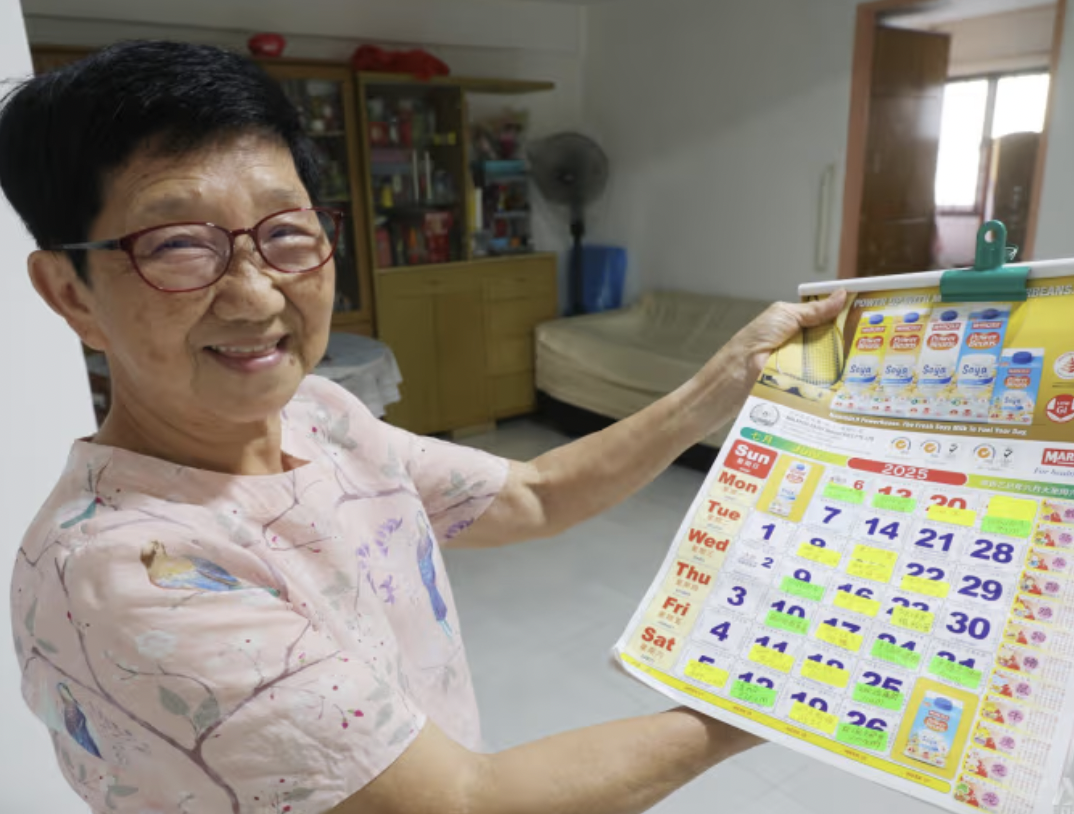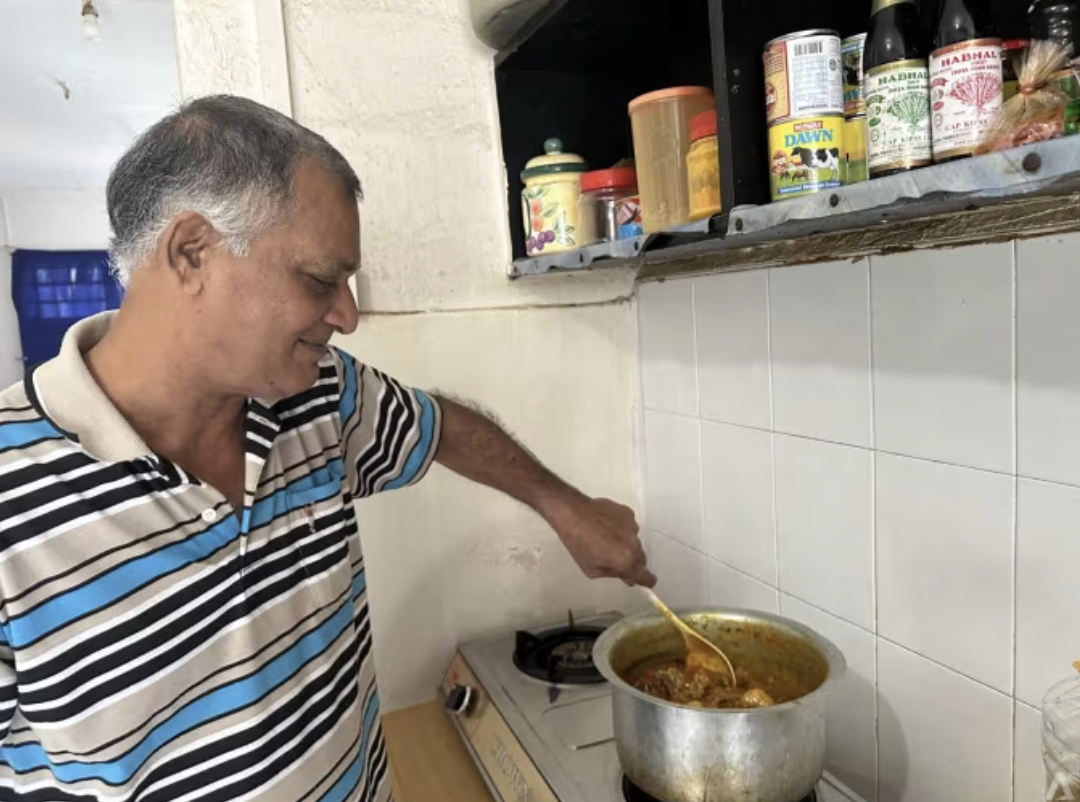Lim lived with her father in an apartment in Serangoon until he passed away in 2003. She has never married and has no children. Five years ago, due to declining health, she moved to a senior-friendly apartment equipped with built-in wardrobes and bathroom handrails.
Formerly working in the garment industry, Lim used to travel abroad twice a year. Back then, she anticipated a slower pace of life in her old age, but her schedule remains full. She participates in meridian therapy, sewing, drone exploration, jump rope, Zumba, and stretching classes.
"I have to keep myself busy as I get older," she said. Last year, she experienced arm pain, forcing her to stop exercising for almost two months, resulting in noticeable muscle weakness.
However, Lim has no intention of living with any of her 9 siblings, as they all have their own families. "The important thing is I don't feel lonely or deprived," she said. Currently, she is being treated for high blood pressure but maintains good overall health.
 |
Lim Seng Whay lives alone in her apartment in Singapore. Photo: CNA |
Lim Seng Whay lives alone in her apartment in Singapore. Photo: CNA
77-year-old Lim Seng Whay has lived alone since 2016, after her youngest son and his family moved out of their three-room apartment in Bukit Batok. Her husband passed away suddenly in 2007 from a stroke.
A mother of three sons, she describes feeling like a "butterfly," free to participate in neighborhood activities. Every morning, she exercises, and in the afternoon, she meets friends or volunteers to support other elderly individuals in the community. Her three sons and their families visit regularly. She maintains close relationships with her children and grandchildren but prioritizes her freedom and independence.
"Living with children can be inconvenient sometimes because you have to look after grandchildren, cook, and feel like you're fulfilling an obligation," she said.
Singapore is projected to enter a super-aged phase starting in 2026, when people aged 65 and above will account for over 20% of the population. Consequently, the number of elderly people living alone is increasing. The number of individuals living alone has more than doubled, from 42,100 to 87,200, according to a report by the Ministry of Family and Social Development released in July.
Experts suggest that not all seniors living alone are lonely; many actively choose this lifestyle and maintain a positive outlook.
Research from Duke-NUS Medical School indicates that 34% of older adults experience loneliness. The rate is 43% for those living alone and 33% for those living with others. These findings suggest that within the population of seniors living alone, a significant portion, like Lim, actively choose independence and do not feel lonely.
"As the aging process evolves, our perspectives and methods of supporting the elderly also need to adapt," said Associate Professor Angelique Chan from the Centre for Ageing Research and Education, Duke-NUS Medical School.
She argues that the needs of today's seniors differ from previous generations. Policies designed for those born before 1950 may no longer be suitable for the generation born between 1950 and 1959. "They want to be more proactive in how they age," she said.
61-year-old Rajendran lives alone in a two-room rental apartment in Eunos.
He was a hospital employee but retired at 35 after a fall that injured his spine and affected his brain. He has never married and has no children. He currently relies on long-term government assistance.
He spends most of his time at home cooking, watching movies, and managing chronic illnesses like heart disease and gout. His nephew occasionally visits, eats with him, and stays overnight. However, when asked about moving in together, he declined, saying, "He has a wife and child. I don't want to bother them."
 |
Rajendran cooks in his apartment. Photo: CNA |
Rajendran cooks in his apartment. Photo: CNA
His two siblings have passed away, and his remaining sister is seriously ill. He tries to visit the senior center a few times a week. "If someone is friendly, I talk to them. But if they don't like me, there's no need to socialize," he said. "That's my principle."
Therefore, instead of assuming that seniors living alone are unhappy or abandoned by their families, society needs to shift its perspective. Living alone doesn't necessarily equate to loneliness; it can be an active choice reflecting a need for freedom, control over one's time, and a desire not to burden family members.
Associate Professor Chan from Nanyang Technological University emphasizes that living alone and social isolation are two distinct concepts. Elderly individuals living alone but with strong social networks can still live healthy and fulfilling lives.
"Instead of stigmatizing, it's important to encourage them to build social connections in the later stages of life," she said. "This is the key to them living well, living proactively, and with dignity as they age."
Ngoc Ngan (CNA)












